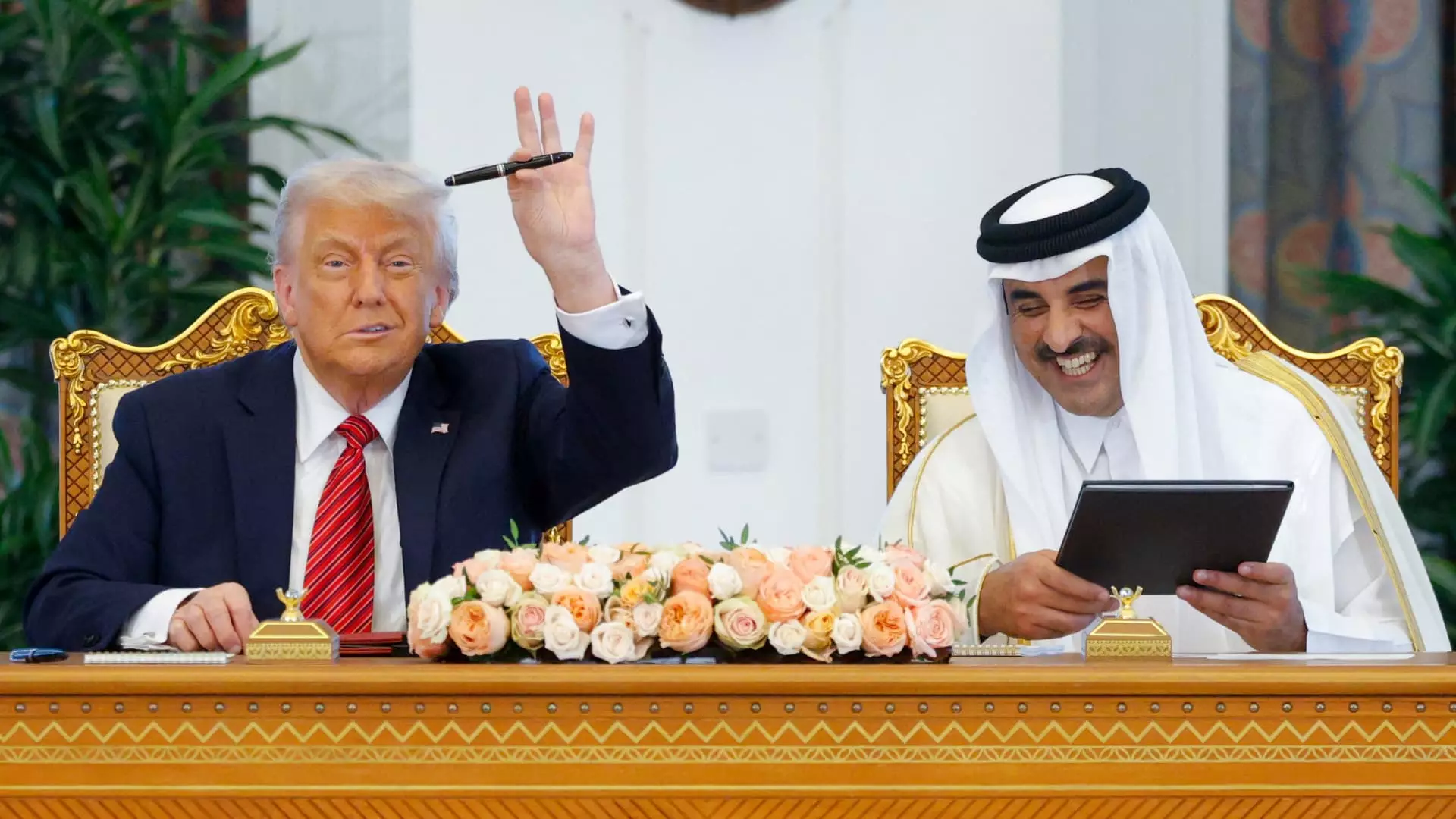In an era where political transactions are often concealed behind layers of rhetoric, the recent scandal involving Qatar’s rumored $400 million Boeing 747 jet gift to former President Donald Trump follows a well-trodden path of questionable alliances. Sheikh Mohammed bin Abdulrahman al-Thani, Qatar’s prime minister, insists that this exchange is merely a standard operational affair between allied nations. However, let’s not gloss over the glaring implications of this transaction—what is being portrayed as a “normal” diplomatic agreement bleeds with the complexities of influence, transparency, and ethical governance.
In essence, the relationship between Qatar and the United States is now stained by the stains of allegiance built through opulent offerings. Such a gesture raises profound questions about the integrity of diplomatic relations. The notion that a monumental aircraft could simply be a gift without ulterior motives is naïve, to say the least. Historically, gifts in politics often have been tools for establishing loyalty and binding states in a complex web of dependencies—an expensive way to say, “We’re on your side.”
A Test of Ethical Standards
From the moment the Qatari proposal was unveiled, it drew sharp criticism from various American political factions, particularly Democrats who swiftly labeled the offer as nothing less than a troubling ethical dilemma. The U.S. Constitution’s Foreign Emoluments Clause, which states that no person in office may accept gifts from foreign entities without congressional consent, has become a focal point of this controversy. The overarching question is not merely whether the aircraft will be accepted but whether such acceptance is congruous with the ethical frameworks designed to protect the integrity of the highest office.
Representative Jamie Raskin’s assertion that Congress bears the responsibility to prevent the president from using the executive position as a means for personal gain points to a broader concern—a potential erosion of democratic norms in the face of glitzy foreign temptations. We need to ask ourselves: how many layers of bureaucracy will it take before the luxurious association between business and statecraft becomes appropriately scrutinized?
The Ripple Effect on U.S. Foreign Policy
As Qatar’s allegations of seeking to “buy influence” continue to reverberate through the corridors of power in Washington, the implications extend far beyond just one lavish gift. This incident fosters an environment where personal ties become indistinguishable from national interests, allowing foreign influence to handicap American diplomacy in profound and detrimental ways.
The exchange of military or commercial interests dressed up as partnerships may lead to bigger players in international relations rewriting the rules. Instead of equitable alliances based on mutual respect and strategic objectives, we may witness a new era where wealth dictates relationships—a calculus that could put national security in jeopardy.
As President Trump himself stated on social media, the plane would “temporarily” replace the aging Air Force One. However, the ongoing issues with Boeing’s manufacturing delays raise another layer of complexity regarding operation security. The notion that a foreign nation could step in to provide a significant asset for the highest office in the land only serves to undermine the perception of sovereignty over American infrastructure.
The Battle for Accountability
The urgency for accountability is now more pressing than ever. If Congress turns a blind eye to such gifts, the moral compass of leadership becomes skewed, cultivating an environment ripe for corruption. Critics assert that allowing such transactions under the guise of diplomatic gifts hollows out the principles designed to govern the vast and sometimes murky waters of foreign relations.
As the Biden administration navigates a political landscape increasingly fraught with ethical dilemmas and populist sentiments, the flickering flames of such controversies could ignite broader dissatisfaction among the electorate. This situation isn’t just a discussion about a plane; it’s indicative of how ordinary citizens interpret their leaders’ integrity and the extent to which loyalty to foreign interests may undermine the nation’s own.
In this unfolding drama, the stakes are higher than ever, demanding not only transparency from leaders but a re-evaluation of the very foundations upon which American politics—ideals of ethical governance and democratic accountability—rest. The true test for the U.S. will be in its ability to confront such heady issues without succumbing to the seductive allure of foreign wealth.


Leave a Reply